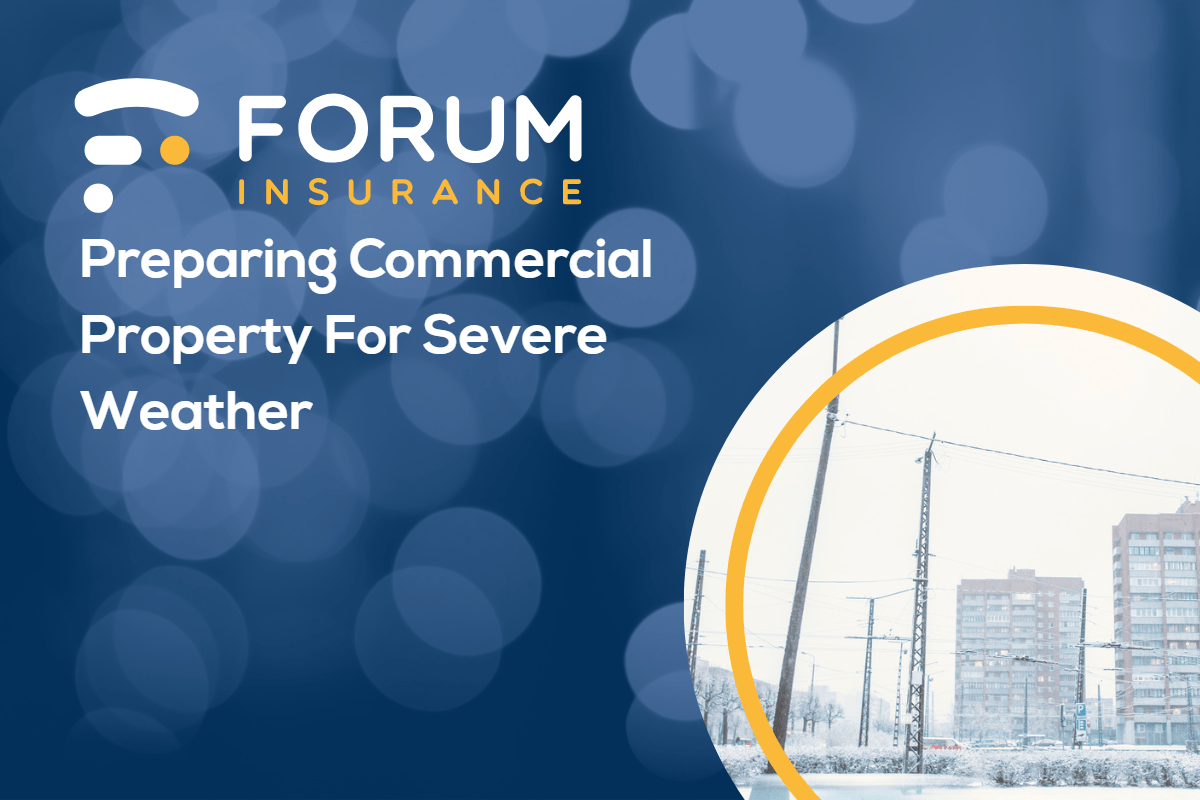By Niraj Mamtora
•
24 Nov, 2022
Planning ahead for cold conditions There are a number of protective measures you can consider taking to help prepare your commercial property for the cold conditions, including: Have a professional plumber check your plumbing joints for leaks. Remember those which are hidden and keep an eye out for green discolouration on copper pipes – this could be a sign of a leak. Review your insulation to protect your pipes from freezing. Prevent your water supply stopcock from stiffening by testing it from time to time. Perform a comprehensive risk assessment to evaluate ice, flood and snow hazards, including large falling icicles, significant slippages of snow from sloping roofs or roof collapse from the weight of the snow. Develop your Business Continuity Plan (BCP) (Disaster Recovery Plan) to cater for winter-specific conditions. Check manufacturing processes and materials to see if they’re affected by lower temperatures. Check roofs, gutters and drains to make sure they’re in good working order. Don’t forget to follow the duties and precautions under the Work at Height Regulations even if the person carrying out the work is not your employee. Review any fire risk assessment; if you need to provide any additional or different heating, remember to inform your insurance intermediary. For the external parts of your property, consider: Implement slip-related safety measures, such as gritting or diversion to less slippery walkways. Don’t forget that hard floors in entrance areas can become very slippery during wet or snowy weather. Assess the exterior lighting around your premises; with less hours of daylight, it may be harder for people visiting you to see icy and other slippery areas. Leaving your property vacant If you’re going to leave your property vacant for an extended period of time over the winter months, it’s important to consider the following: Don’t lower the heating too much. Leave it on low at around 15°C, to prevent existing water from freezing. Alternatively, you could drain the plumbing system entirely. If you’re considering doing this, you should seek professional advice. Make sure that pipes in unheated areas, such as lofts and, where accessible, under floor spaces are insulated with high quality lagging. Insulate water tanks in lofts and unheated spaces or open-sided buildings. Have someone keep an eye on your property, who’ll be able to contact you should they find a leak. Hire a professional to check if you have a condensing type central heating boiler, which has an external condensate discharge pipe, ask them to check that the pipe is the correct minimum diameter for the model of boiler involved and that the pipe is suitably lagged. Freezing water in an unlagged external pipe could cause your boiler to stop working. In areas where extremely low temperatures can occur, your heating engineer may recommend that the pipe is also electrically trace heated. Watch out for frozen pipes Tell-tale signs of a frozen pipe include no water coming from the tap, frost or ice on the outside of the pipe and if the pipe appears to be bulging. However, a frozen pipe doesn’t necessarily mean a disaster, if you act quickly enough. If you discover a water pipe which is frozen but has not burst, take the following steps to prevent it from bursting and protect your possessions: Turn off the stopcock. Remove any furniture or equipment in the area which may get damaged by any leaking or escaping water, where safe and practical to do so. Open the tap closest to the area and begin gently warming the pipe with a hairdryer or hot water bottle, starting from the end closest to the tap and working away from the faucet. Don’t forget any outdoor taps – it may be worth insulating these to prevent water from freezing inside the cavity wall and causing an escape of water. Although pipes are inevitably damaged when they freeze, it’s only possible to see bursts when the pipe begins to thaw. If it is apparent that a pipe in your property has burst, you should: Turn off the stopcock and drain the system by opening taps in baths and sinks. Switch off your heating and, if in doubt, your electricity at the mains. Contact your plumber immediately. If possible, once the leak has been fixed, make sure you air the affected parts of the property by leaving windows and doors open. This content is by no means exhaustive and is for guidance purposes only. It’s not intended to amount to advice on which reliance should be placed. For requirements specific to your business, please seek professional advice.

